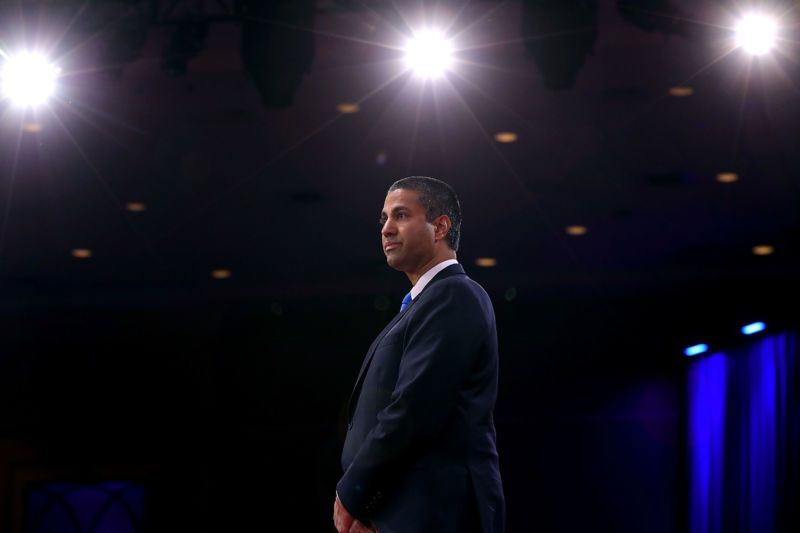
Federal Communications Commission Chairman Ajit Pai may have belatedly concluded that federal regulation of broadband would be better for businesses than letting all 50 US states regulate Internet access.
Speaking at the WSJ Tech Live conference yesterday, Pai said that “a uniform, well-established set of regulations” is preferable to states regulating broadband individually. “[Pai] said allowing states and local governments to pass their own laws regulating Internet services, which inherently cross state lines, creates market uncertainty,” according to CNET.
The CNET article included this direct quote from Pai:
When you’re talking about the choice for a venture capitalist or an entrepreneur to set up shop in the United States where they have to get permission from the federal government or from the state of California, San Francisco, or some other jurisdiction, or whether they should set up shop in country B where there’s a uniform, well-established set of regulations that are consistent, I worry that the proposition value for country B will become stronger over time.
What Pai apparently failed to mention is that the United States had “a uniform, well-established set of regulations” with net neutrality rules passed during the Obama administration, until Pai himself led a vote to eliminate those rules and deregulate the broadband industry. Pai tried to have it both ways by eliminating the uniform, nationwide regulation while also ordering states not to regulate broadband themselves.
Court shot Pai down on preemption
But Pai’s FCC overstepped its authority when it issued that blanket order to preempt any and all current and future state regulation of net neutrality, a panel of judges at the US Court of Appeals for the District of Columbia Circuit ruled this month. The judges’ reasoning was simple: Pai’s FCC lost the power to stop all state laws when it abandoned its own regulatory authority.
“[I]n any area where the Commission lacks the authority to regulate, it equally lacks the power to preempt state law,” the judges’ ruling said.
On the plus side for Pai, the judges’ opinion upheld the FCC’s repeal of federal net neutrality rules and leaves the door open for the FCC to challenge specific state laws on a case-by-case basis. But in the meantime, Pai’s failure in court could subject ISPs to different rules in each state, with no guarantee that the FCC will be able to preempt any or all of those state laws.
One solution for Pai would be for Congress to pass a law preventing states from regulating broadband. CNET wrote:
[Pai] argued that “while that federalist system has served us very well” up to this point in our nation’s history, it’s time for Congress to consider “whether or not we can still maintain a multilayer regulatory system.”
States regulate
Washington state is regulating ISPs directly under a net neutrality law that took effect in June 2018. Similar to the repealed federal regulations, Washington state law prohibits home and mobile Internet providers from blocking or throttling lawful Internet traffic and from charging online services for prioritization.
California and Vermont have state net neutrality laws but agreed to suspend enforcement of the laws until all appeals in the FCC court case are exhausted. If the judges’ ruling that blocked Pai’s preemption attempt is upheld on appeal, those state laws will be enforced.
Oregon has a law in effect that forbids state agencies from purchasing broadband service from ISPs that violate net neutrality principles. The governors of several other states issued executive orders that also handle net neutrality by imposing requirements on state agencies instead of directly on ISPs.
It’s unlikely that any of these states would have tried to regulate net neutrality if the FCC—the US government’s expert agency on communications networks—had simply continued its regulatory oversight of the telecom industry.
But while Pai has repeatedly stripped regulations away from the industry that he does regulate, he has been supportive of the telecom industry’s call for more regulation of online platforms. Pai said that “big technology companies should be regulated in some form to level the playing field with highly regulated telecommunications and broadband providers,” The Wall Street Journal wrote, paraphrasing Pai’s remarks yesterday.
The Journal also provided a direct quote from Pai on the topic. “The rules that we have on the books, whether the FCC or any agency, should adjust to reflect the marketplace that we’re in, not the marketplace that we were in two decades ago,” Pai said.
https://arstechnica.com/?p=1589735

